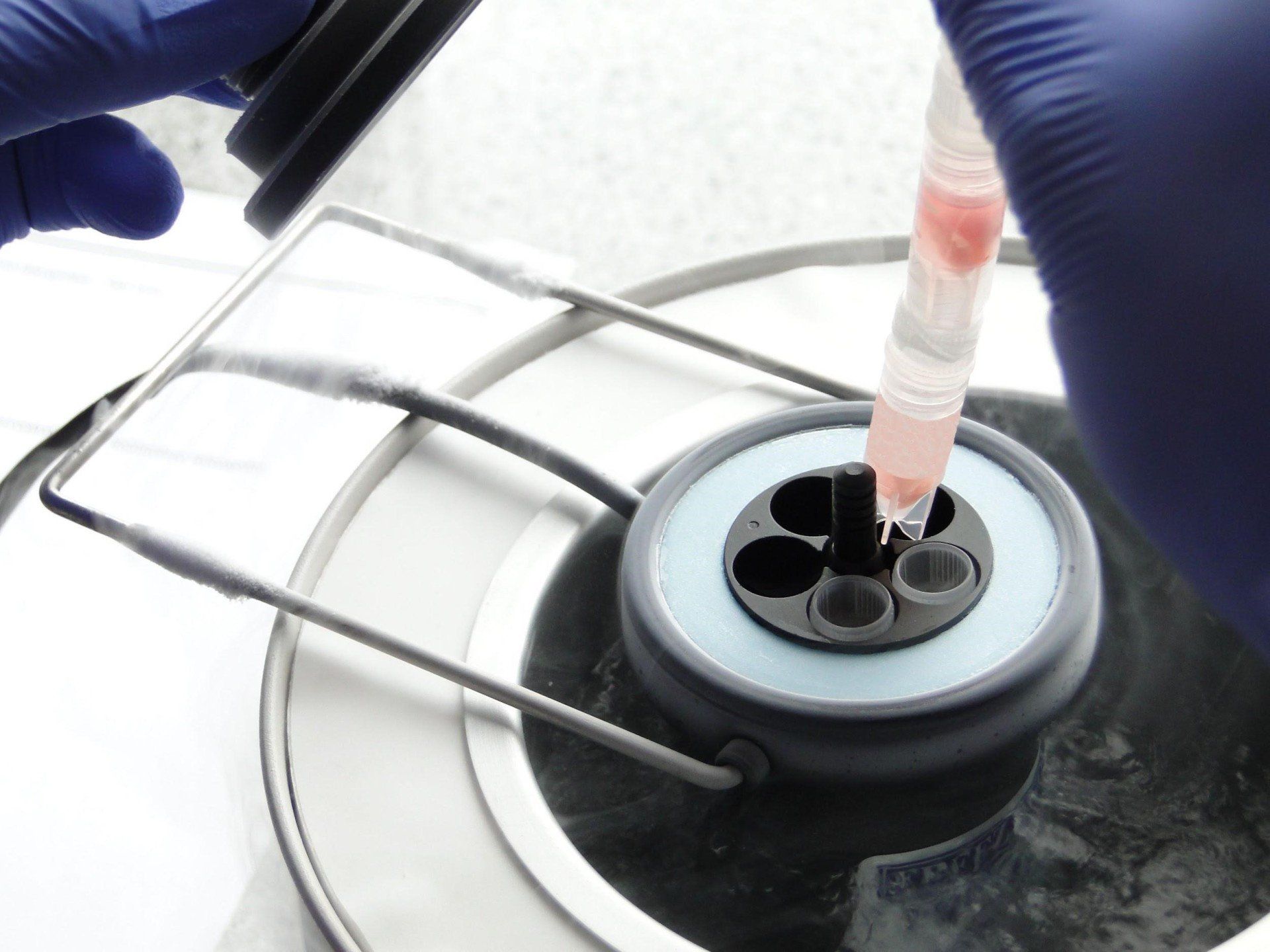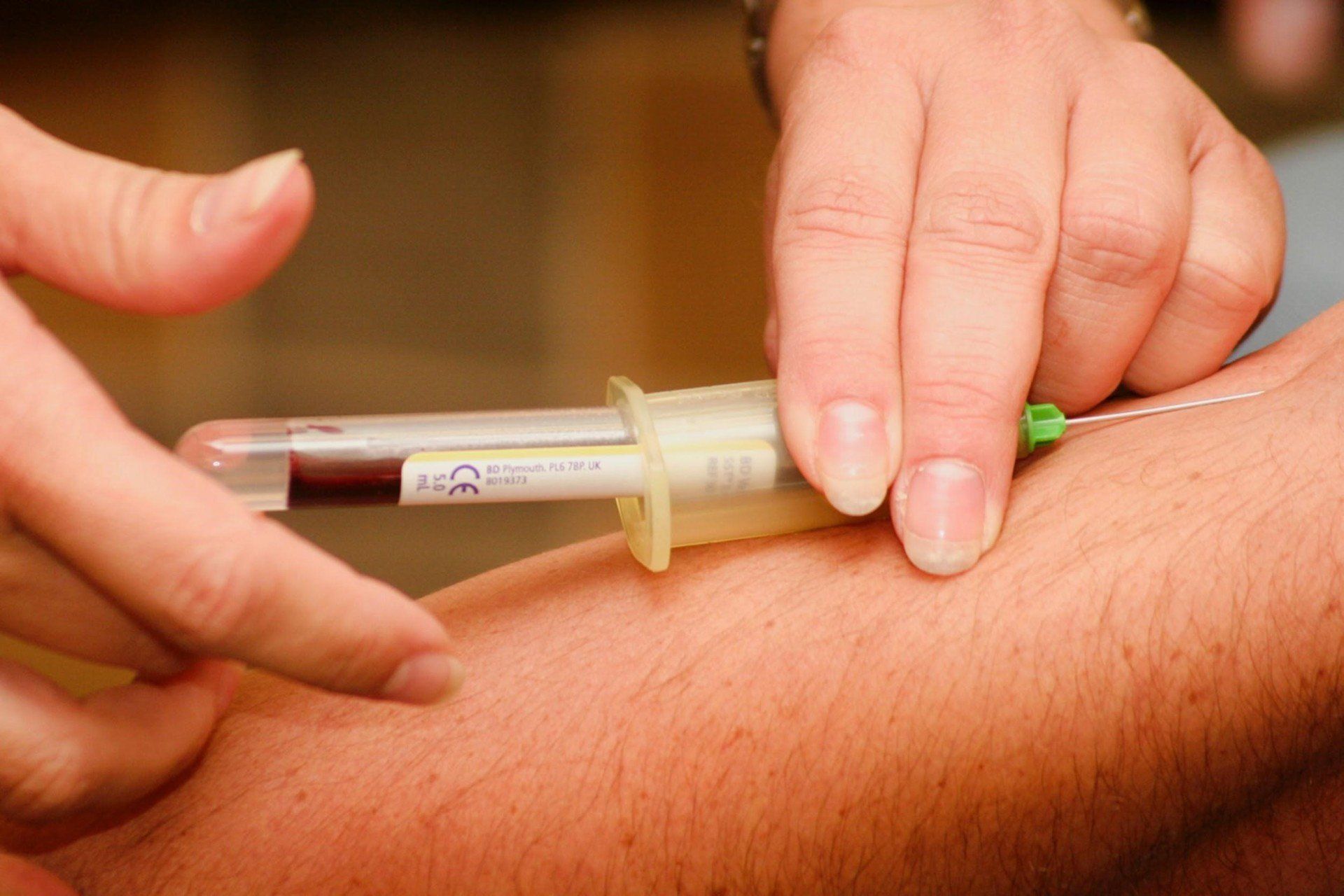IVF Side Effects
The article is a one-stop-shop for all the details about IVF, also known as in-vitro fertilization. You'll learn how long the process regularly takes, along with all potential IVF side effects. The purpose is to provide you with information so that you can make an informed decision.
If you have any specific questions not answered in this piece, feel free to contact our office. We would be happy to respond to any queries.
What is IVF?
IVF is also known as in-vitro fertilization. The process helps couples who are struggling to have a child conceive. An IVF doctor will combine an egg and sperm outside the body in a laboratory dish. From there, the doctor transfers the fertilized egg into the woman's uterus to continue to develop.
The IVF process
has been well-tested and has a long history, meaning that complications and injury are rare. However, every procedure has side effects, which we will go over in later sections.
When Should I Consider IVF?
In-vitro fertilization is the most common and successful alternative to traditional pregnancy. First and foremost, talk with your primary care physician. You might want to consider the course of action if you suffer from a variety of conditions.
- Your fallopian tube is blocked or damaged, leading to embryos being unable to travel to the uterus
- Your ovulation is disordered, infrequent, or absent
- You have endometritis
- If you have uterine fibroids
- If you've had previous tube sterilization or removal
- Your sperm moves weakly, or is not concentrated enough, or an abnormal shape/size
- You or your partner risk passing a genetic disorder on to your child
- Becoming pregnant would pose a grave danger to your health
How Long will the IVF Process Take?
The IVF procedure has multiple steps, so you'll need to be patient. Each in-vitro cycle lasts about two to three weeks, and you could need repetitious rounds for pregnancy to stick. Also, if you are planning to find an egg donor, you'll want to dedicate time to finding the most exemplary candidate. Plan to spend a couple of months trying the IVF, then nine-plus months for the pregnancy and birth cycle.
Step One: Suppression
The first step of the IVF process is even out the production rate of your follicles. The follicles are fluid-filled sacs that hold your eggs. Traditionally, the follicles all grow at their own pace, and the first one to become large enough wins out.
IVF follows a unique plan. You'll have to ingest oral contraceptives to slow the rate of follicle growth. You want all the fluid-filled sacs to reach maturity at the same time. The more follicles that are mature when you start injections, the higher egg yield you'll see during retrieval.
Potential Side Effects During Stage One
The potential side effects during the suppression stage come from the ingestion of oral contraceptives. Most will be mild or not noticeable at all. They include:
- Spotting
- Breast tenderness
- Nausea
- Mood swings
However, if symptoms are too severe, you might need to switch contraceptives until you find one that works for your body. Work with your doctor to find the most suitable course of action.
Step Two: Stimulation
The second step is what most people hear about IVF, the injections. Unfortunately, pills are not strong enough to stimulate follicle growth. That is where shots come into play.
Traditionally, your body releases a cohort of follicles from your total egg supply every cycle, in hopes that one becomes dominant and the others get reabsorbed into the body. With IVF, we want to salvage as many of your follicles as possible. Thus, daily stimulation injections help keep more follicles maturing. Though you'll see more sacs become mature and dominant, it is normal for some to remain inadequate and for the body to reabsorb them.
As for the process of injecting, you'll need to administer the shots daily, around the same time, to see success. Give yourself a two-hour window each day to take your pills and administer the injection. The regular scheduled shots mimic how the body naturally produces follicular growth hormones.
During the stimulation phase, visit your fertility doctor about five to seven times for blood tests and ultrasounds. That way, you can be sure of when your follicles reach maturity.
Potential Side Effects During Stage Two
Unfortunately, your IVF side effects become more noticeable during this phase. It's perfectly natural to experience a variety of symptoms, such as:
- Headaches and migraines
- Hot flashes
- Nausea
- Bloating
- Injection site bruising
- Breast tenderness
If the symptoms become so severe that they get in the way of normal functioning, then seek medical help immediately.
Step Three: Egg Retrieval
For the third step, you'll be under anesthesia. Egg retrieval means that the doctor will remove the ready eggs from mature follicles. Unfortunately, medical professionals must puncture each follicle and withdraw the fluid because they cannot see eggs inside the ovary.
All the fluid gets placed into a Petri dish, then an embryologist counts them and prepares them to mix with sperm. The following day, you find out how many eggs fertilized.
Potential Side Effects During Stage Three
Egg retrieval is a surgical procedure, meaning that you will deal with multiple effects. Your uterus will be sore and tender for about five to seven days afterwards. You could also experience nausea or vertigo from the anesthesia.
If you have a drastic weight change or increase in abdominal length, contact your caregiver immediately as you could have ovarian hyper-stimulation syndrome.
Step Four: Embryo Transfer
After a week more of estrogen and progesterone injections, you'll have either fresh or frozen blastocysts placed into your uterus. Come to your appointment with a full bladder and expect to wait twenty minutes after the transfer is complete. You'll know whether or not you're pregnant, the main side effect of step four, in nine to ten days.
Ready to Start Your IVF Journey?
Though there is a range of IVF side effects, you should feel inspired to take the next step in your journey. Contact us for more information today.
For many couples dealing with infertility, IVF (or in vitro fertilization) is their best chance for conceiving a child. But unfortunately, this type of treatment isn’t a guaranteed success, and it can be disheartening for couples who experience failed IVF. Not only is IVF a significant financial commitment, but those who undergo it also sacrifice a great deal of mental energy due to the stress it can create. If you are struggling to conceive through IVF treatments, you deserve to know why it might be failing. Our team at Fountain of You has compiled some of the most common causes of failed IVF. Keep reading for more information.
For those struggling to get pregnant, finding something that works can seem impossible. That's where IVF comes in: IVF, or in-vitro fertilization, helps with fertilization and embryo development so pregnancy is possible. In IVF, a woman's eggs and a man's sperm are combined in a laboratory to create an embryo. Then, the embryo is transferred back to the woman to increase the chances of pregnancy. IVF can be used for couples experiencing infertility, same sex couples, and single women pursuing motherhood. If you're curious about the process, how it works, and potential costs, read more about it below.
IVF, also known as in vitro fertilization, is a special type of fertility treatment and is also the most common form of assisted reproductive technology (ART) . This type of medical procedure has been around for several decades and has enabled hundreds of thousands of couples to conceive children. If you are considering this type of fertility treatment or would just like to learn more about it, our team at Fountain of You has compiled some IVF facts that are often left out of mainstream discussions of this topic. Read on to learn more about this treatment, its history, and how it may affect you.
The decision to become a single mother is a challenging one. Maybe you had envisioned having a partner at this stage in your life but haven’t found that special person. Yet you’re ready to have a child, even if it’s on your own. Fortunately, it’s possible for you to fulfill your dream of being a mother with or without a partner. IVF for single women makes your dream a reality. Here's everything you need to know about this miraculous process.

Freezing eggs is medically known as oocyte cryopreservation. It is the procedure in which a woman's eggs are extracted, frozen and preserved to retain their ability to reproduce at a later age. Freezing eggs has gained popularity among many young women that want a chance of motherhood later in life. Below are a few reasons why women freeze their ovum, as well as things to consider if you decide to freeze before IVF.

Some couples endure unforeseen struggles when starting their families. Sometimes, they need to turn to IVF treatments due to prolonged difficulties with conception. Couples often go overseas in search of IVF. Oftentimes, patients seek IVF in places outside of their home countries like Bangkok due to factors like: More affordable care A higher percentage of positive treatment outcomes compared to a patient's home country A wider range of IVF treatments are available More esteemed doctors in the reproductive endocrinology and infertility (REI) field Here, we will outline how our IVF treatments in Bangkok can help you conceive.






